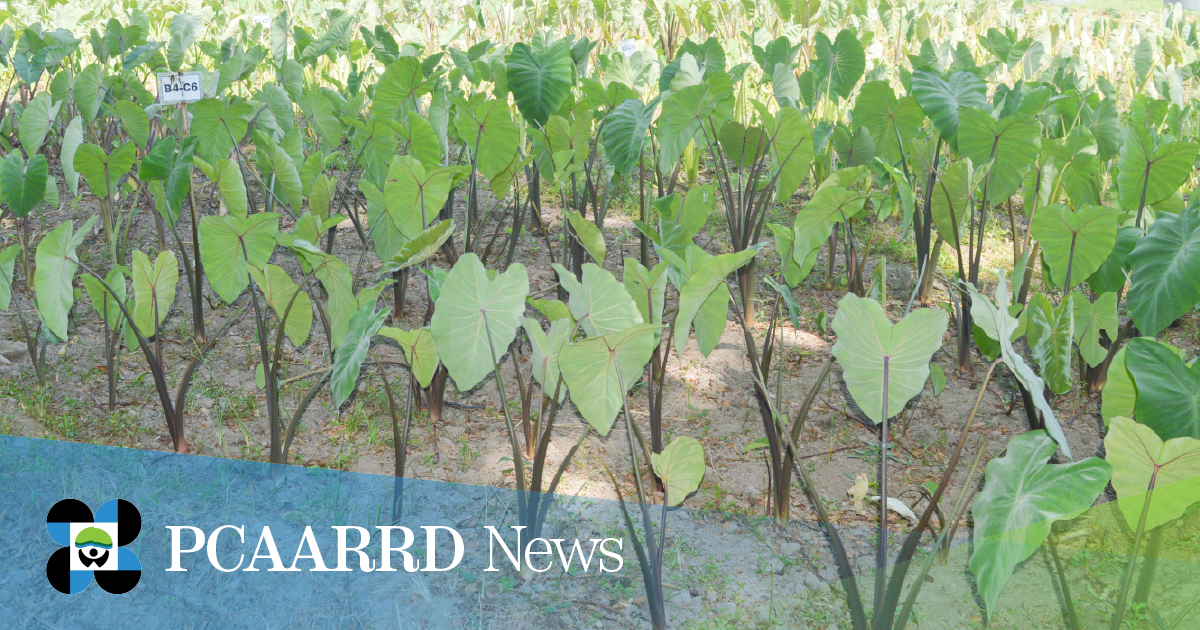
Taro experimental sites in CBSUA-Calabanga campus (left) and CBSUA Agriville, San Jose, Pili, Camarines Sur (right). (Image credit: CRD, DOST-PCAARRD)
Promising taro cultivars were recently identified through an ongoing research and development (R&D) program funded by the Philippine Council for Agriculture, Aquatic and Natural Resources Research and Development of the Department of Science and Technology (DOST-PCAARRD).
The program, “Boosting the Taro Industry and Indigenous Crops of the Bicol Region,” is being implemented by the Central Bicol State University of Agriculture (CBSUA), which aims to enhance taro production and management technologies, as well as increase the utilization of indigenous crops in the Bicol Region through product development.

In a field visit conducted by the DOST-PCAARRD’s Crops Research Division (CRD), Program Leader Allan B. Del Rosario reported that their field trials of ten selected local taro cultivars under upland and lowland conditions are nearing completion. Dr. Del Rosario added that two promising cultivars, 'Bicol purple' and 'Tinahig,' were identified for registration at the National Seed Industry Council (NSIC) because of their excellent quality foliage and corms.
Meanwhile, Project Leader Lilia C. Pasiona shared that her team collected 70 accessions of taro and other indigenous crops for conservation at the CBSUA germplasm facility. The project also aims to promote the documented indigenous crops through information, education, and communication (IEC) materials.
Project Leader Rocelyn M. Imperial, who works on product development using taro and selected indigenous crops, stated that the optimization of taro flour processing, taro starch extraction, as well as taro milk and lubi-lubi powder production are ongoing.

During the activity, CBSUA President Alberto N. Naperi expressed his anticipation for the expansion of DOST-PCAARRD-funded projects, not only within CBSUA but throughout the Bicol Region. Dr. Naperi also emphasized CBSUA’s collective vision of fostering partnerships with universities to strengthen the region’s capabilities.
The field visit was attended by CBSUA representatives led by Dr. Del Rosario and CRD team led by Industry Strategic S&T Program (ISP) Manager for Vegetables Joel Norman R. Panganiban.

